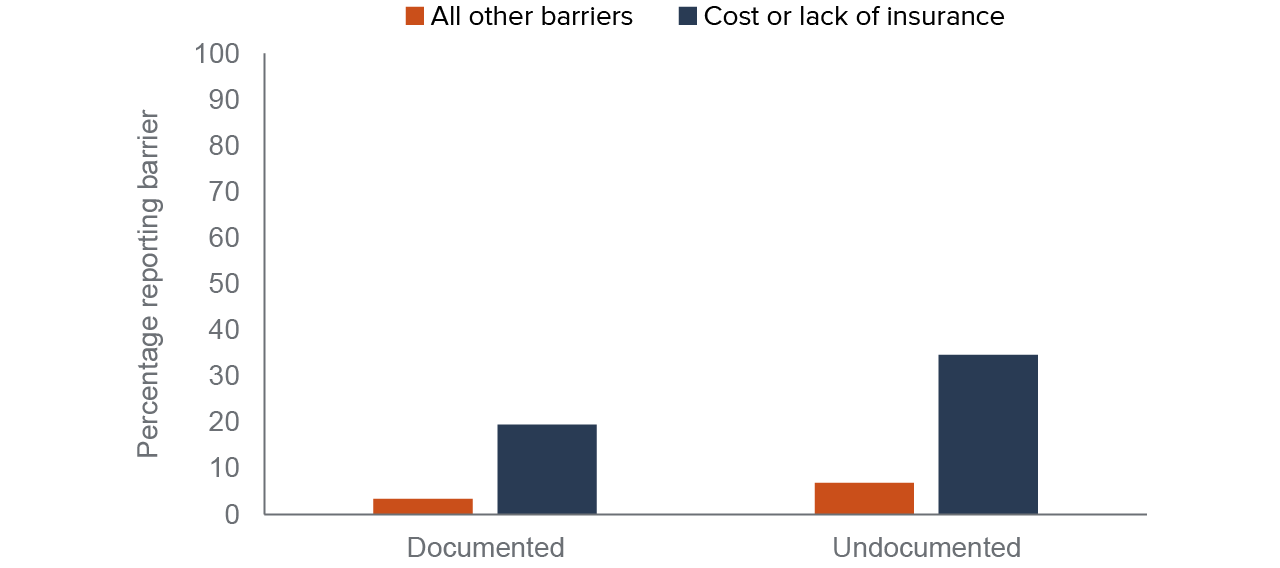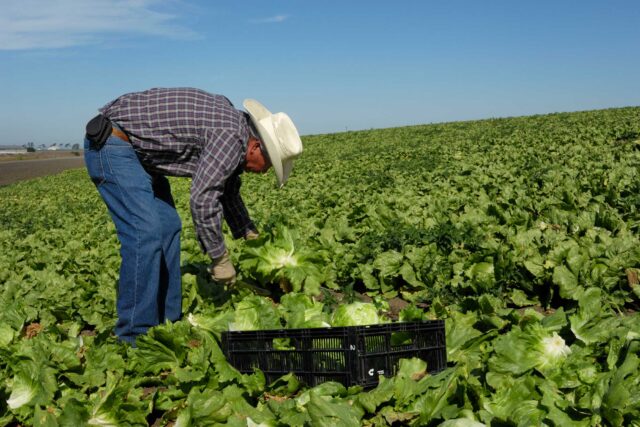California’s farmworkers may have gained better access to health care under recent federal and state policies. As part of the Affordable Care Act (ACA), California expanded Medi-Cal public health insurance to most low-income adults, while state expansions of Medi-Cal extended coverage to some low-income undocumented immigrants. The ACA also mandated companies with at least 50 full-time workers to offer employer health insurance.
In the January 2022 budget, Governor Newsom has proposed expanding Medi-Cal to undocumented low-income adults ages 26–49—a change that would begin in 2024. Seventy-five percent of undocumented farmworkers fell into this age group as of 2018, the most recent year of data available.
Numbering around 162,500, California’s farmworkers are a vital link in the food supply chain for the state and nation. California’s agricultural sector produced over $50 billion in revenue in 2019; the critical role farmworkers play in the state’s economy underscores the importance of access to health care for these workers, an issue accentuated by the COVID pandemic.
How did barriers and access to health care change for farmworkers?
As of 2019, about 8 percent of Californians had no form of health insurance, and a disproportionate share were immigrants. Immigrants tend to be healthier than US-born individuals; however, immigrants often work in hazardous occupations such as construction and agriculture. More than 90 percent of California farmworkers are immigrants; over half of immigrant farmworkers are undocumented.
Cost of care or lack of health insurance are the most common reasons farmworkers may not get health care. Thirty-five percent of undocumented farmworkers and 20 percent of documented farmworkers cited this barrier—workers mentioned other barriers much less often, such as transportation, knowing where to find medical services, or immigration status.
Cost or lack of health insurance is by far farmworkers’ biggest barrier to health care

SOURCE: National Agricultural Workers Survey, fiscal years 2010–2017.
NOTES: Weighted averages presented. Farmworkers include CA survey participants born outside of US and Puerto Rico. Excludes farmworkers who report never needing care in US (8% of documented, 18% of undocumented). Undocumented status self-reported. Workers can report more than one barrier. “All other barriers” include undocumented status, no transportation or provider too far, not knowing where services are available, needed services not available, provider not open when needed, not speaking worker’s language, not respectful or welcoming, or not understanding problem, and fear of job loss due to seeking care.
With the 2014 expansion of Medi-Cal to low-income adults, documented farmworkers who earn incomes less than 138 percent of federal poverty—currently about $38,300 for a family of four—became eligible to enroll in the program. Most undocumented farmworkers remained ineligible.
Many documented farmworkers enrolled in Medi-Cal after the expansion, leading to higher levels of health insurance coverage. However, after the state implemented the ACA employer mandate through 2015 and 2016, it did not seem to translate into more farmworkers joining employer plans. Neither expansion appeared to change levels of insurance coverage among undocumented farmworkers.
How have farmworkers’ health care needs changed with age and families?
California farmworkers are aging, and in recent years, work has shifted so that more workers are settling in the US with their families. With age, farmworkers’ health care needs are likely to grow; with families, concerns include coverage and care for family and children.
The average farmworker is over 40 years old. Undocumented workers tend to be younger, but they are aging as well. Older farmworkers need various preventive screenings; those with undiagnosed conditions—such as diabetes—or who lacked past access to care may face health consequences in older years.
In California, undocumented immigrants over age 50 are much less likely to have health insurance compared to documented immigrants (51% vs. 91%). Furthermore, undocumented immigrants cannot buy plans through Covered California, the state’s insurance marketplace, and are less likely to have insurance through employers. Although undocumented workers are eligible for employer coverage, cost and availability can be barriers.
Since about 2010, farmworkers are more likely to settle in the US with their families. Although about 70 percent of California farmworkers are male, as families join workers to live year-round, questions about access to care become questions about women’s health, prenatal care, and pediatric services.
Beginning in 2020, California extended full-scope Medi-Cal to all children and young adults, regardless of immigration status; adults 50 and older will have access in 2022.
What policy changes could make health care accessible to more farmworkers?
As California works toward a unified financing system for health care, most farmworkers will likely fall under some form of coverage in coming years. A strong majority of Californians (66%) support health care coverage for undocumented immigrants, according to the PPIC Statewide Survey.
As the state’s health care marketplace, Covered California connects people with private insurance providers; subsidies are available to those who qualify. Opening Covered California to undocumented immigrants through a federal waiver could provide more options, though low- and moderate-income purchasers may need support through state subsidies.
Undocumented farmworkers could gain access to insurance through federal reform to immigration, though this is unlikely to happen soon. President Biden’s vision includes paths to citizenship for undocumented immigrants and fast-track regularization of status for undocumented farmworkers. These changes could make undocumented immigrants eligible for Medi-Cal or for Covered California premium subsidies if they meet income limits.



